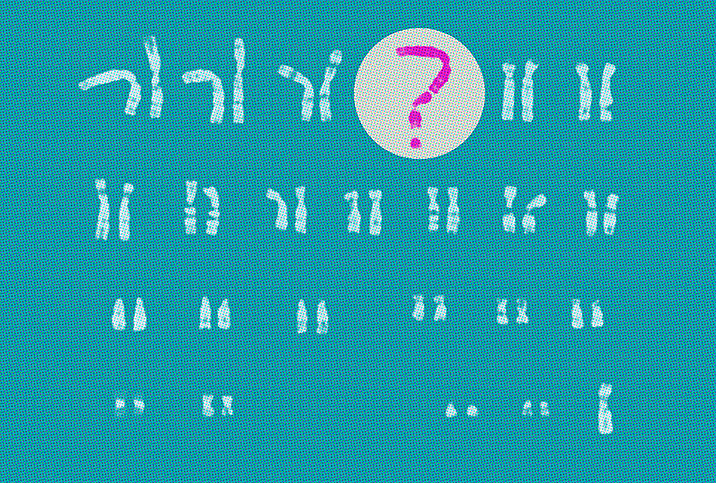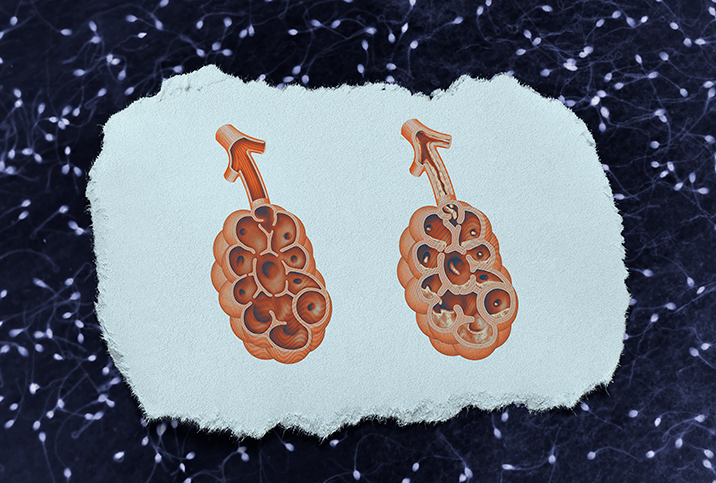Why Ashkenazi Jews Are More at Risk for Rare Genetic Diseases

Compared to the general population, Ashkenazi Jews—originally of Eastern European descent—are more prone to a rare group of genetic disorders. According to the University of Michigan Health, 1 in 4 Ashkenazi Jews is a carrier of one of these genetic conditions: Gaucher disease, cystic fibrosis, Tay-Sachs disease, familial dysautonomia or Canavan disease.
Researchers believe Ashkenazi Jews are more likely to carry gene mutations for these diseases because of their common ancestry and the founder effect.
The founder effect is described by the National Human Genome Research Institute as the reduction in genetic variation that results when a small subset of a large population is used to establish a new colony. The new population may be very different from the original population, both in terms of its genotypes and phenotypes.
As Jews were separated over time—through the Holocaust and other expulsions across history—the risk for genetic diseases increased. When they migrated from big populations and formed smaller ones, they carried a subset of genetic information with them that changed the types of genes developed in their new population as more children were born.
How genetic diseases are passed down
According to the National Gaucher Foundation, in order for a child to develop one of these genetic diseases, they must inherit two mutations for the same disease. This means if both parents carry the same gene for a particular disease, their child can be at risk of developing said genetic disease.
"As carriers of this disease have children and the population starts to grow, the mutation becomes more prevalent," said Karen Arnovitz Grinzaid, M.S., CGC, CCRC, JScreen's executive director. "It is believed that most of today's Ashkenazi Jews descended from a small group of individuals, or 'founders,' that immigrated to Eastern Europe. Even if just a few of these individuals or founders had a particular mutation, the mutation would become more frequent over time.
"It is important to remember that this is not specific to the Jewish population," Grinzaid added. "Many ethnic groups have genetic diseases that are more common in their population than in others."
Even though the carriers themselves may not be affected by these genes, their descendants are at a greater risk since genes mutate over time. Each child of a carrier parent has a 50 percent chance of being a carrier as well. If two carriers reproduce, their children are at an increased risk of developing the disease itself.
The diseases in question
Most of these diseases are severe and can cause early death. However, some of them can be treated to reduce symptoms and prolong life if caught early.
Cystic fibrosis: 1 in 40 Ashkenazi Jews are carriers. Cystic fibrosis causes severe damage to the lungs, digestive system and other organs in the body through the formation of very thick mucus. Patients require daily medication and care, and face the possibility of a lung transplant.
Canavan's disease: 1 in 36 Ashkenazi Jews are carriers. This is a progressive neurological disorder caused by the lack of an important enzyme that causes the deterioration of myelin—white matter in the brain—which in turn damages the ability of nerve cells (neurons) in the brain to send and receive messages. Motor skills, including moving, talking and eating, become weakened. Severe cases of Canavan's disease are fatal and life expectancy is perhaps 10 years, but mild cases can be treated for a prognosis of a long life.
Tay-Sachs disease: 1 in 27 Ashkenazi Jews are carriers. Tay-Sachs disease consists of a fatty substance in the brain, which destroys nerve cells thus causing neurological problems in the brain and spinal cord. This typically affects infants in their first few months of life and results in death in early childhood. There is currently no cure for this disease, although a great deal of research is ongoing.
Gaucher disease: 1 in 12 Ashkenazi Jews are carriers. Gaucher disease is classified into three types—Type I, Type II and Type III. If you have this disorder, you lack an important enzyme that deals with lipids, fatty substances that build up in your liver and spleen to unhealthy levels. While there is no cure for Gaucher disease, there are prescribed medicines that can control symptoms and prevent further damage.
"Type I is associated with certain physical symptoms but does not involve the nervous system," said Emily Goldberg, M.S., CGC, JScreen's genetic counselor. "This type is very common in Ashkenazi Jews, affecting 1 in every 500 people. Types II and III are associated with neurologic problems."
Other diseases that affect Ashkenazi Jews include Bloom syndrome, familial dysautonomia, Fanconi anemia, mucolipidosis IV (ML IV), Niemann-Pick disease and torsion dystonia.
Preventing genetic diseases
Since Ashkenazi Jews or people with ancestral connections to Ashkenazi Jews are more prone to carry these diseases, it is essential to undergo a screening process before trying to conceive. JScreen, for example, is an at-home carrier screening program that gives people across the U.S. access to saliva-based testing for more than 200 diseases, including those common in Jewish and other populations.
"Carrier screening can help identify which disease genes a person carries," Grinzaid said. "If a carrier couple knows they are at risk, there are reproductive options they can take advantage of, like in vitro fertilization (IVF) with genetic testing, to help them have healthy children."
"Through the IVF process, the woman's egg(s) are fertilized with the man's sperm outside of the body and genetic testing is done on the embryos to select the ones that do not have the disease," Goldberg explained. "Having a baby with a genetic disease is completely preventable through pre-implantation genetic testing (PGT) and IVF."


















